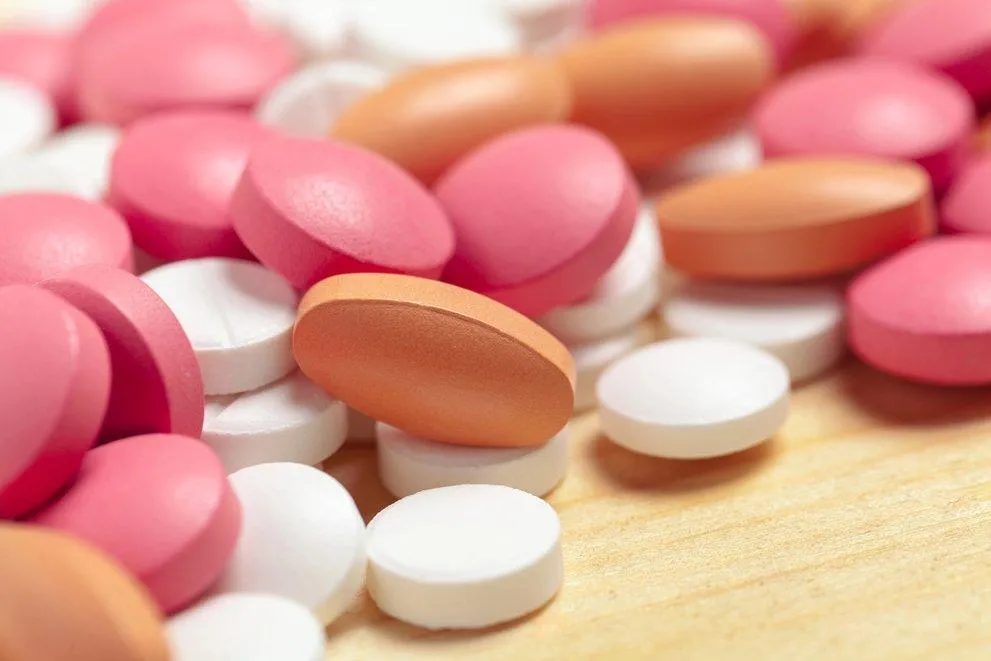
What Are Proton Pump Inhibitors? Types, Uses & How They Work
Proton pump inhibitors (or PPIs) are a group of medications that decrease stomach acid production. PPIs are the first-line treatment in persistent acid reflux and gastro-oesophageal reflux disease (GERD). PPIs are exclusively available via prescription in the UK.
Taking a PPI can completely stop heartburn symptoms, giving people long-term relief and allowing the stomach and oesophagus to recover. They’re generally not used for acute acid attacks or for rapid relief from an acid attack.
What Are Proton Pump Inhibitors?
Proton pump inhibitors (PPIs) target the “proton pumps” that line the stomach. These pumps move hydrogen ions (H+) into the stomach, thereby increasing the acidity. The more hydrogen ions, the more acidic the stomach is.
Through this direct action, PPIs can provide complete symptom relief for some people with ongoing heartburn, though their effectiveness varies from person to person. By reducing acid exposure, PPIs can also help the oesophagus and stomach heal from long-term irritation.
PPIs aren’t usually prescribed for sudden acid attacks — antacids are better suited for rapid relief. Instead, PPIs are taken as a longer-term therapy to keep acid levels consistently low and prevent flare-ups from happening in the first place.
Types of Proton Pump Inhibitors
Common types of PPIs include:
Omeprazole (Losec)
Esomeprazole (Nexium)
Lansoprazole (Zoton)
Pantoprazole (Protium)
Rabeprazole (Pariet)
All PPIs have the same underlying effect. However, some people may respond better to one over the other or may experience fewer side effects with a particular one. Your doctor will decide which is most appropriate based on your symptoms and medical history.
How Do Proton Pump Inhibitors Work
Your stomach produces acid to help with digestion and to kill germs (bacteria or viruses) entering the body. The acid is highly corrosive — you feel its effects during heartburn. The reason your stomach isn’t irritated is due to the natural mucous barrier that protects it from being eroded away.
Proton pumps might be better termed acid pumps. They move protons or hydrogen ions into the stomach. This lowers the pH and makes the stomach acid much stronger.
PPIs target these pumps, blocking them and preventing hydrogen ions from passing into the stomach. This raises the pH, reducing the strength of the acid. So, if you have backflow from the stomach into the oesophagus, it should no longer cause heartburn and irritation.
When Are PPIs Prescribed?
PPIs are often prescribed due to long-term heartburn-related symptoms. But the underlying cause could be any one of several different conditions. If you’re prescribed a PPI, it could be:
To treat persistent acid reflux or GERD. PPIs are the first-line treatment if you’re experiencing frequent heartburn or acid regurgitation.
To heal stomach or duodenal ulcers. By reducing acid production, PPIs give ulcers the chance to repair.
To manage severe acid-related conditions. Rare conditions like Zollinger–Ellison syndrome cause continuous overproduction of stomach acid and require long-term PPI therapy.
To protect the stomach from other medications. PPIs are often prescribed alongside NSAIDs (like ibuprofen) to prevent ulcers or reflux triggered by these drugs.
How Quickly Do Proton Pump Inhibitors Work?
Proton pump inhibitors work relatively quickly. You should notice some relief within 2-3 days of taking a PPI. However, maximum acid suppression usually builds up after 1-2 weeks of daily use.
Given this slight lag time, PPIs won’t stop heartburn immediately. If you’re having an acute episode, only an antacid can neutralise the acid and provide faster relief.
Side Effects of PPIs
Proton pump inhibitors are considered extremely safe medications. Most people taking PPIs don’t experience any side effects (and if they do, they’re often quite mild).
Common side effects:
Headache
Nausea
Diarrhoea or constipation
Abdominal pain
Flatulence
Less common side effects:
Dizziness
Skin rash
Vitamin B12 deficiency (with long-term use)
Low magnesium levels
Increased risk of gut infections (e.g. C. difficile)
If you’re experiencing any side effects from PPIs, speak to your doctor. It may be that a specific PPI is causing issues. You can change to a different PPI or even swap to an alternative treatment, e.g. an H2 blocker.
Can I Buy PPIs or Do I Need a Prescription?
In the UK, PPIs are only available on prescription. Unlike H2 blockers, you can’t buy PPIs over the counter.
Your GP or specialist may prescribe a PPI either short-term or long-term if you’re dealing with frequent acid reflux, stomach ulcers, medication side effects, or other acid-related conditions. Despite their low side effects, PPIs are strong medications — a prescription ensures they’re used safely and sensibly.
Don’t Ignore Persistent Reflux Symptoms
If you’re struggling with persistent heartburn symptoms, ignoring the problem can cause long-term damage. Factors like diet and lifestyle, including triggers such as spicy food or coffee, can play a significant role in your symptoms. With the right diagnosis, you can receive preventative treatment that safeguards against these consequences.
The Functional Gut Clinic provides specialist testing to identify the underlying cause of your symptoms and advises on the best course of action to take.

